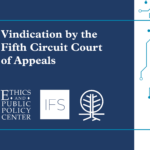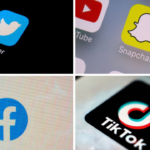
Published February 24, 2022
In 1998, connecting to the Internet from home meant tying up the phone line and slowly loading low-resolution images. Since then, getting online has become as easy as pulling out a phone to watch livestreamed videos in high definition. But the main law meant to protect children online, the Children Online Privacy and Protection Act (COPPA), hasn’t been updated since it was passed in 1998. A law designed before even MySpace came on the scene is simply inadequate for the TikTok era.
According to the Pew Research Center, 60 percent of parents say they are concerned about their preteens coming across age-inappropriate material online, and many say they feel ill-equipped to know how to monitor what their children do online. A new bipartisan piece of legislation introduced last week could offer parents important new tools.
The Kids Online Safety Act would take steps toward better protecting their children on social-media platforms and raising the bar on how social-media companies treat children under the age of 16 who are on their platforms.
Click here to read the rest of this article at National Review.
Clare Morell is a policy analyst at the Ethics and Public Policy Center, where she works on the Big Tech Project. She worked in the White House Counsel’s Office and the Justice Department during the Trump administration.
Patrick T. Brown (@PTBwrites) is a fellow at the Ethics and Public Policy Center and a former senior policy adviser to Congress’s Joint Economic Committee.
Clare Morell is a Senior Policy Analyst at the Ethics and Public Policy Center, where she directs EPPC’s Technology and Human Flourishing Project. Prior to joining EPPC, Ms. Morell worked in both the White House Counsel’s Office and the Department of Justice, as well as in the private and non-profit sectors.












